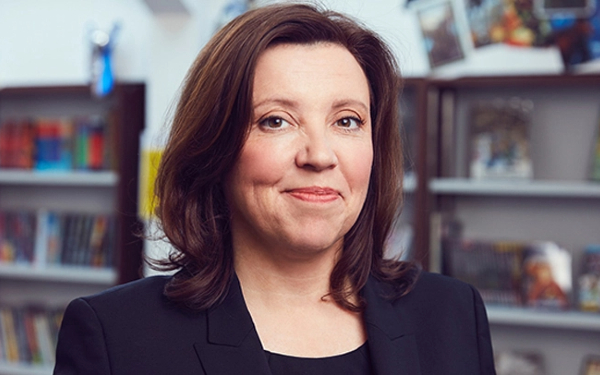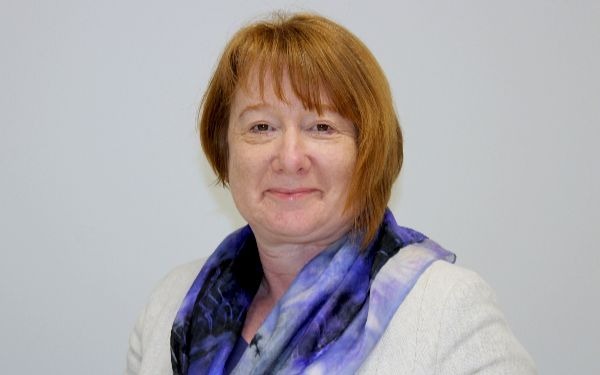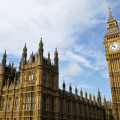
The government will legislate to create a new type of accommodation for children with complex needs in England who are at risk of being deprived of their liberty.
The placement type will be for children who may need to be deprived of their liberty at times, but will provide for restrictions to be increased and decreased according to need.
It will be distinct from secure children’s homes and not suitable for those who need to be placed in SCHs, which are specifically designed to restrict children’s liberty.
The pledge, announced in this week’s social care policy paper, is in response to the huge rise in the number of children made subject to deprivation of liberty (DoL) orders under the inherent jurisdiction of the High Court – its backstop power to protect vulnerable people.
High Court DoL applications for under-18s in England
- April 2017 – March 2018: 103 (source: Cafcass)
- April 2020 – March 2021: 579 (source: Cafcass)
- July 2022 – July 2023: 1,318 (source: Nuffield Family Justice Observatory)
The orders have been used in relation to children with needs including severe mental health issues, significant trauma, autism, learning disabilities or being subject to, or at risk of, criminal or sexual exploitation.
For many children, they have involved moving into unregistered placements, without Ofsted’s regulatory oversight, severe restrictions on their movement and access to technology and contact, constant supervision, often by multiple staff members, and experiences of restraint.
The rise in DoL numbers has been driven by a lack of appropriate placements to meet their needs, whether in open or secure children’s homes or specialist tier 4 child and adolescent mental health services (CAMHS), and a reported reluctance from registered providers to admit them.
A new placement type
The Department for Education (DfE) said there was a need for “new forms of provision” to address the “gap” in supply for children currently subject to DoL orders.

Photo: IQoncept/Adobe Stock
It said it would amend legislation to enable councils to place children in a new type of accommodation, which could “respond more flexibly to their changing and fluctuating needs”, reducing restrictions when safe to do so, as well as providing “crucial therapeutic care”.
The legislation would set “clear criteria for when children may need to be deprived of liberty and mandatory review points to ensure that no child is deprived of liberty for longer than is required to keep them safe”.
Secure accommodation orders
The statutory framework for the new placement type will be distinct from secure accommodation orders, which provide the legal basis for councils to place looked-after children in SCHs.
Section 25 of the Children Act 1989 provides that children may only be so placed if:
- They have a history of absconding, would abscond from non-secure accommodation and, if they absconded, would be likely to suffer significant harm, or
- They would likely injure themselves or others if placed in non-secure accommodation.
Not a solution to shortages of secure home placements
The DfE said its proposed new accommodation type would be for children whose needs cannot be met in an SCH, which means it would not provide a solution to the severe shortages of secure home places.
Ofsted has previously said that 50 children are waiting for an SCH place at any one time, while research last year by the Nuffield Family Justice Observatory found that, in 10% of DoL applications, it was explicitly stated that a secure home placement would have been preferable, but was not available.
England currently has 13 SCHs, with new or replacement provision due to be developed in London and Lincolnshire.
Experiences of children subject to DoL orders
The proposal responds to a key recommendation from a DfE-commissioned report from the Children’s Commissioner for England, Rachel De Souza, which examined the experiences of 15 children with experience of DoL orders.

Children’s Commissioner for England Rachel de Souza (credit: Office of the Children’s Commissioner)
The report, also published this week, found that the children had experienced significant instability in the support they received, before being made subject to a DoL.
This included frequent changes of placement and social workers, with the lack of consistent relationships being to the detriment of their mental health.
They experienced further trauma from the experience of separation from family and friends, changes in caregivers, isolation, restrictions and restraints while under the DoL orders.
Also, most of the children reported having limited opportunities to have their voices heard and be involved in decisions while under the order.
Commissioner’s recommendation for new placement type
The commissioner recommended the the government establish a new statutory framework for deprivation of liberty in an Ofsted-registered home that was not an SCH. This should make clear that:
- Deprivation of liberty should only be authorised when it is necessary for children’s safety and welfare and not because of a shortage of appropriate accommodation.
- There should be judicial oversight for any deprivation of liberty and any authorisation must be reviewed every three months.
- The child should automatically be a party to any deprivation of liberty proceedings, meaning they are represented by a Cafcass guardian.
- Children should have the opportunity to share their views with the judge as part of the deprivation of liberty process and should be supported to do so in a way that is comfortable for them.
- The education secretary and Ofsted must be notified of any deprivation of liberty application where the child is not in a registered home.
- Children deprived of their liberty should have access to advocacy, including non-instructed advocacy as needed.
‘Far fewer should be deprived of liberty’
However, the commissioner also called for action to ensure far fewer children were deprived of their liberty. This should involve “radical investment in creating new and safe places for children to live in registered children’s homes which can provide safe accommodation and therapeutic support for children living with trauma and at risk of harm”.
On this point, the DfE said that, in partnership with NHS England, it would pilot a new, community-based approach to delivering “specialist care and accommodation for children who have complex needs”, with input from social care, health, education and justice professionals.
This will be tested by the South East Regional Care Co-operative, one of two areas piloting the regionalised commissioning of care placements.
The DfE said the approach “has the potential to reduce both local authority reliance on costly unregistered placements and immediate and lifetime costs to the health and justice systems”.
Ofsted gives backing in principle
Ofsted’s national director for social care, Yvette Stanley, said the regulator backed the plan for a new placement type “in principle”, but warned that “how it is implemented will be critical to its success”.

Yvette Stanley, Ofsted’s national director for social care
“Any deprivation must be the least restrictive option possible and support children’s transitions to their next stage,” she added.
Stanley also said that Ofsted was looking to make changes to its social care common inspection framework, which governs its regulation of sector providers.
This was with a view to “[removing] any barriers that Ofsted may create, perceived or otherwise, to providers working with children with multiple and complex needs”.






 Bournemouth, Christchurch and Poole
Bournemouth, Christchurch and Poole  Hampshire County Council
Hampshire County Council  Oxfordshire County Council
Oxfordshire County Council  South Gloucestershire Council
South Gloucestershire Council  Wokingham Borough Council
Wokingham Borough Council  Webinar: building a practice framework with the influence of practitioner voice
Webinar: building a practice framework with the influence of practitioner voice  ‘They don’t have to retell their story’: building long-lasting relationships with children and young people
‘They don’t have to retell their story’: building long-lasting relationships with children and young people  Podcast: returning to social work after becoming a first-time parent
Podcast: returning to social work after becoming a first-time parent  How managers are inspiring social workers to progress in their careers
How managers are inspiring social workers to progress in their careers  Workforce Insights – showcasing a selection of the sector’s top recruiters
Workforce Insights – showcasing a selection of the sector’s top recruiters 

 Facebook
Facebook X
X LinkedIn
LinkedIn Instagram
Instagram
This proposel may support those children who are placed in inapproprate placements which do not meet thier individual needs.Often children and young people are experincing trauma,mental health issues,continual absconding where by they remain at risk.The responce of the home is to request removal.(not helpful for the child or social worker who then can not complete appropriate assessments to identify the child’s needs and or access approprate services).
Sorry to say in my opinion the current provisions does not meet the young persons indiviaul needs and offer no therapeutic work.Although on the surface the young person may appear to require a secure environment application for a deprivation of liberty order may not always be in the best interest of the child.They may not have experienced the benefits/opportunity of a therapeutic
placement where by meaningful indivual planning has been identified.
Requesting a deprivation of liberty order is not a decision taken lightly.
Placements need to be offering meaningful work and not just accommodation or an ipod if not it serves no purpose for the child/young person. When children are removed they experince trauma on all levels.
This only leaves the young person expecting nothing will change,no one cares about them,they are not listened to. There experience in foster care and or residential care may offers no positive experiences for them.Resistance by the young person then makes it difficult to engage the young person.
These are based on my experiences,observation and assessments.
I think as a mum all orders needs to be looked at propley and the mums who are single parents should be giving the help with there children at home with a support worker calling in for three months to see if they are coping well and if they see they are the case then should be shut not till they have seen the children and mums and family’s at home first and some mums don’t get the change to show this as some social workers don’t wanna work with family’s and please look in to this right away but always give mums and family a chance first
Why were your children removed Donna?
When I first worked in children’s homes in the 1980s, we were allowed to stand in front of a a door to prevent an upset child from leaving. If necessary to apply a restraint for the minimum time, using only minimum pressure, and using only a recognised technique for which we had been trained. That changed at some point and by then I’d retrained as a Social Worker, and saw an increasing number of homes refusing to intervene that way.
I’m at the end of my career and I see children in unregulated solo placements run by cowboy companies charging huge sums, because the child/ young person presents a threat of harm to others or themselves while we wait for a DoLS Hearing.
A properly managed children’s home with high staffing ratios and properly trained staff should be able to do a better job, if they were not fearful.
An increased frequency of Ofsted inspections would be an important safeguard too.
I completely agree that we need to shut down all unregulated provisions. They only provide some sort of monitoring. They lack care and support.
One of the biggest hurdle genuine people/companies face is the planning from the Local Authority. This also needs to the looked at. If planning is granted to support the local children to stay in the local area with/without DOLs then all providers would register.
I, someone with 18 years of experience working with children in care tried twice before to get planning but have been rejected or discouraged as LA don’t want to do change of use, but see a lot of people with zero experience get planning very easily.
For DOLS placement to be registered with Ofsted, would require planning from LA.
How would this be navigated?